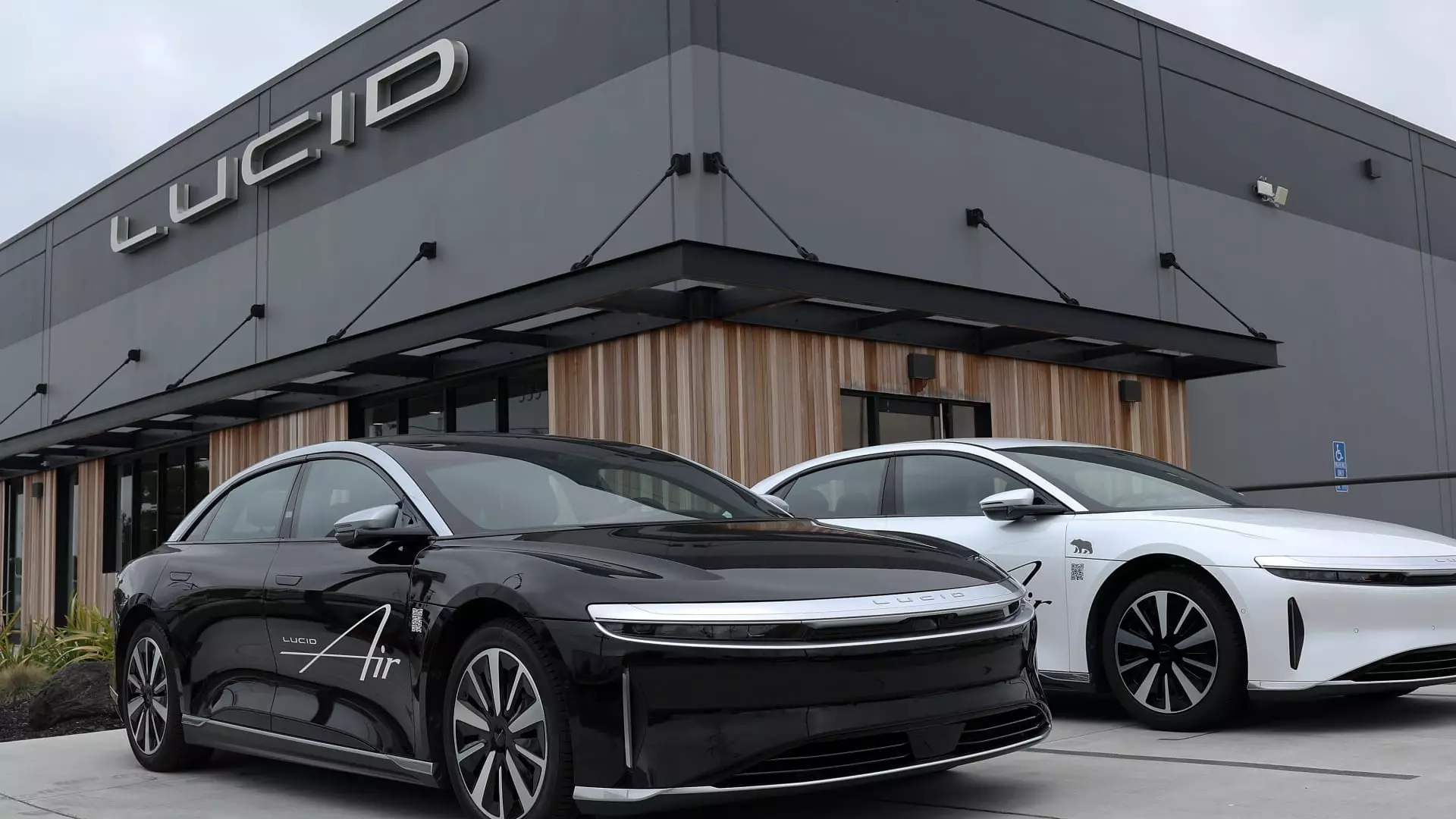The electric vehicle (EV) industry has seen quite the shake-up with Lucid Group’s recent announcement regarding a significant leadership change. The resignation of CEO Peter Rawlinson, amid plans to ramp up production substantially, raises both eyebrows and questions about the company’s future. Rawlinson, who had been at the helm for twelve years, is stepping down from his role but will continue to be involved with the company as a strategic technical advisor. This article delves into the implications of this transition, the company’s current standing in the marketplace, and what lies ahead for Lucid Group.
Peter Rawlinson’s departure from the role of CEO marks a critical juncture for Lucid Group. Previously lauded for his vision and contributions that saw Lucid transition from a fledgling startup to a recognized player in the EV landscape, Rawlinson’s resignation comes as a surprise to many. His tenure was defined by aggressive strategies aimed at elevating Lucid’s brand through innovative engineering and a commitment to sustainable transportation. Rawlinson taking on the role of a strategic technical advisor could suggest that the company intends to retain his expertise while allowing a new leader to take over its operational direction.
Marc Winterhoff, previously the company’s chief operating officer, has assumed the role of interim CEO. With a background in consulting and automotive strategies, Winterhoff brings a fresh perspective, yet his appointment underlines the lack of a permanent successor, raising concerns about the company’s stability during this transitional phase. The board’s immediate search for a new CEO signals that Lucid recognizes the necessity of strong leadership, especially given the ambitious targets set for the upcoming year.
Lucid has announced an intention to double its vehicle production to 20,000 units this year, a massive leap from the production and delivery numbers reported for 2024. The company delivered 10,241 vehicles last year—indicative of a substantial increase needed to meet the new goal. While Winterhoff has indicated that the production of the second vehicle, an SUV known as the Gravity, will contribute to meeting these targets, the specific share of this new model’s production remains uncertain.
This production promise comes at a time when the electric vehicle industry is experiencing growing pains. Many automakers are struggling with supply chain disruptions, regulatory challenges, and shifts in consumer preferences. Lucid must navigate these complexities while ramping up production, making the stakes for the new leadership higher than ever.
The timing of Rawlinson’s resignation coincides with the release of Lucid’s disappointing financial results from the fourth quarter. The reported net loss of $636.9 million, which shows only a minor improvement from the previous year, raises questions about the financial health of the company. Analysts had anticipated a less significant loss but were met with numbers that highlighted ongoing challenges related to profitability.
As the EV market continues to grow, Lucid faces pressure not only regarding production but also in terms of financial management. With a substantial loss per share and decreasing stock value, the confidence of investors may waver, especially as the broader market also reacts to potential shifts in government policy under a new administration.
Lucid’s path forward will require careful navigation of both internal and external challenges. The departure of a longstanding CEO could introduce volatility, but it could also offer an opportunity for renewal. The choice for a new CEO will be pivotal; a leader with strategic vision and operational savvy will be critical to guide Lucid through its ambitious production plans and toward its goal of long-term profitability.
Additionally, as a significant portion of Lucid’s backing comes from Saudi Arabia’s Public Investment Fund, the company’s strategic decisions will also be influenced by international interests and the global EV market’s evolving dynamics. As Lucid moves ahead, the relationship between innovative leadership and operational execution will determine the company’s success in the competitive landscape of electric vehicles.
While the changes at the top create uncertainty, they also present an opportunity for Lucid Group to recalibrate its strategies as it aims to solidify its position in a rapidly transforming industry. The effectiveness of this transition and the company’s ability to meet its lofty ambitions remain to be seen, but stakeholders will be keenly observing every step.


Leave a Reply